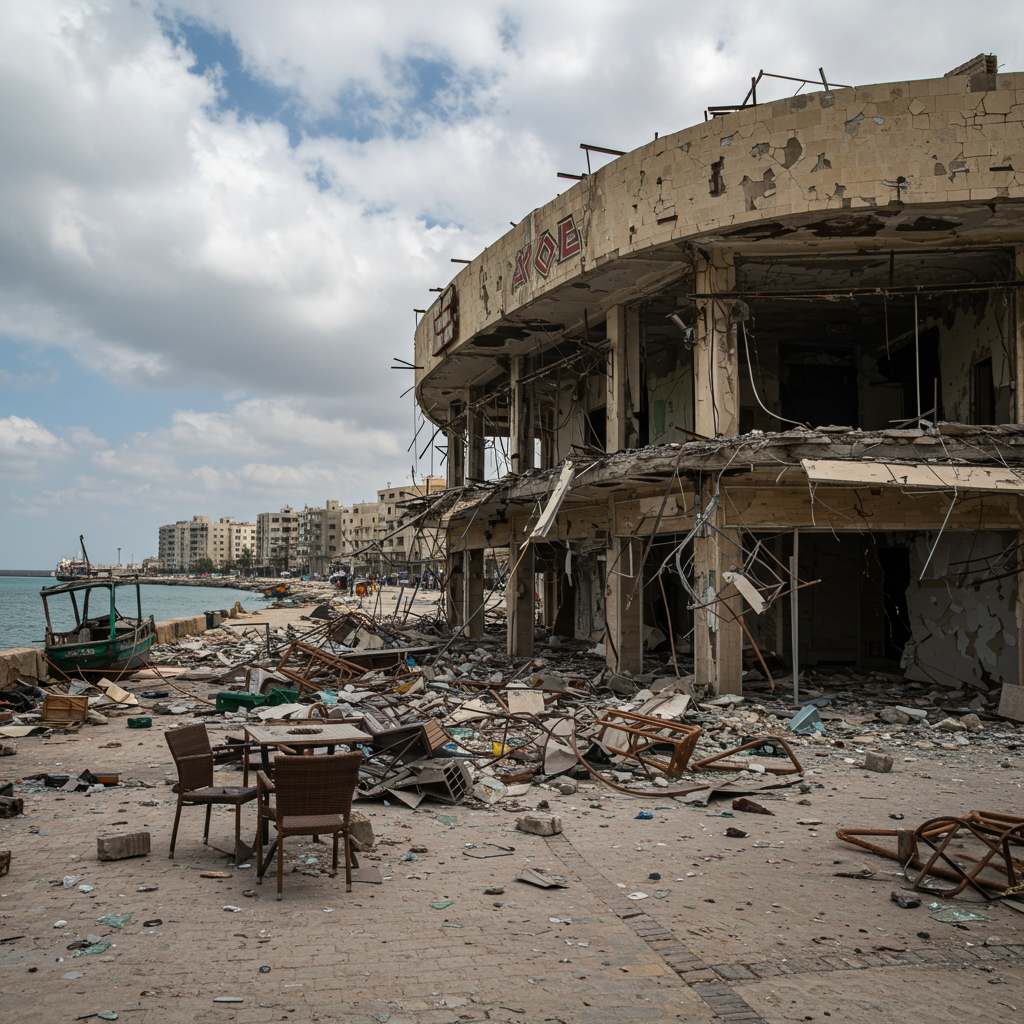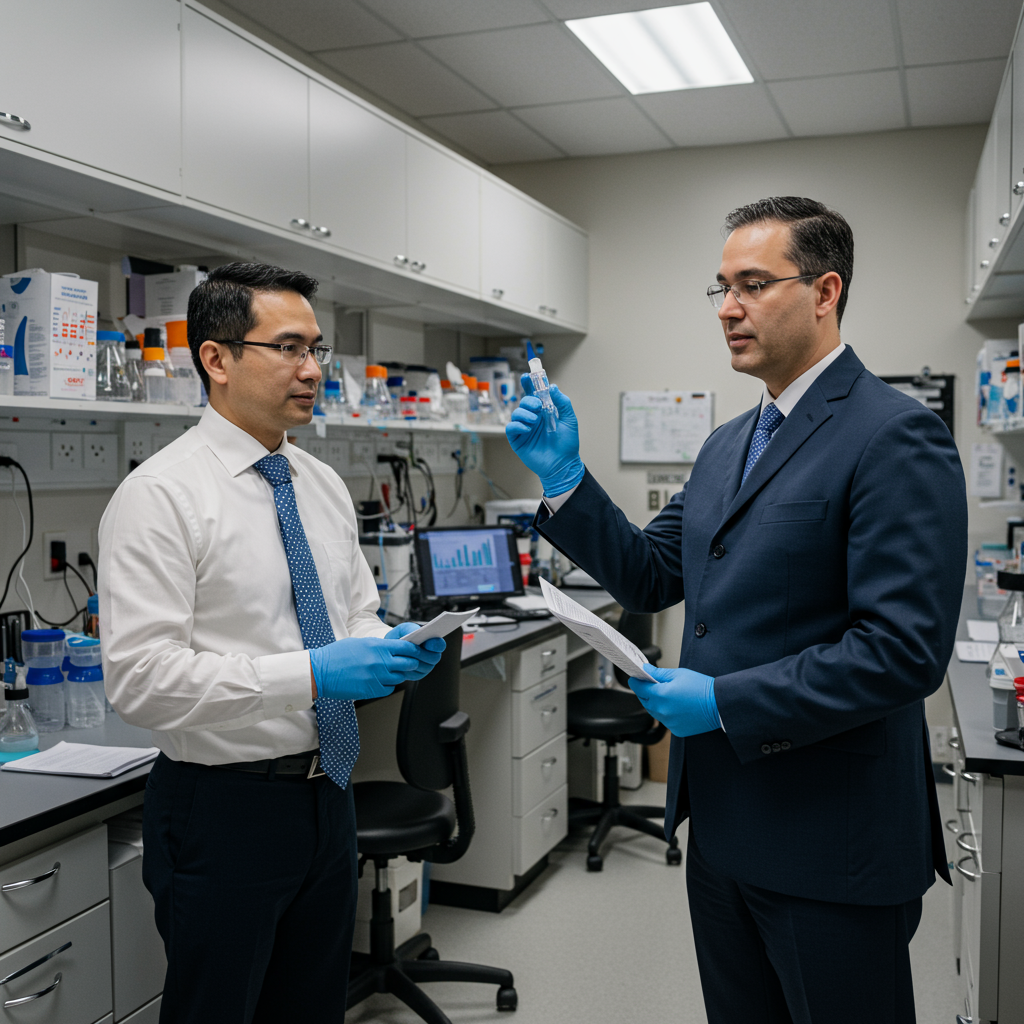An Israeli airstrike struck a popular cafe near the port in Gaza City on June 30, 2025, resulting in a significant loss of life and widespread devastation. According to reports from the head of the territory’s largest medical facility, the attack tragically killed dozens of people. The incident adds another grim chapter to the ongoing conflict in the region, highlighting the severe impact on civilian populations. Initial reports indicated that more than 40 individuals perished in the strike, with many others sustaining injuries.
Dr. Mohammad Abu Silmiya, who directs Al-Shifa hospital, provided updates on the casualties following the Monday night attack. He stated that at least 41 people were confirmed dead, and 75 injured individuals arrived at the hospital seeking urgent medical care. The death toll unfortunately rose later that night as some of the critically wounded succumbed to their injuries.
Visual evidence geolocated by CNN depicted scenes of chaos and destruction near the Gaza City port area. Thick plumes of smoke were visible rising into the sky from the location of the cafe. Videos also showed the extent of the damage inflicted upon the building itself and surrounding structures. Emergency responders and civilians were seen actively removing bodies from the rubble on stretchers, underscoring the immediate aftermath of the deadly strike.
The Israel Defense Forces (IDF) acknowledged the incident when contacted for comment by CNN. The IDF stated that the matter was currently “under review.” In their response to specific questions about the strike, the IDF asserted that earlier on Monday, their forces had targeted “several Hamas terrorists in the northern Gaza Strip.” They also claimed that “steps were taken to mitigate the risk of harming civilians using aerial surveillance” prior to carrying out the strike.
The targeted location, known as Al-Baqa cafe, held particular significance within the community. It was recognized as a frequented spot, especially popular among students, journalists, and individuals working remotely. The cafe provided internet access and offered a workspace located conveniently along the Mediterranean coast, making it a valuable resource for many in Gaza City.
Damage assessments conducted after the strike revealed the intensity of the blast. A Palestinian man was photographed examining an area near the cafe that had been heavily damaged. Funerals were held for some of the victims, with mourners gathering to grieve the Palestinians killed in the attack on the Al-Baqa cafeteria. These scenes painted a stark picture of the human cost of the violence.
Providing further details on the casualties, Dr. Silmiya informed CNN that a large proportion of those killed or injured were women and children. He specifically noted that many students who had been at the cafe utilizing its internet facilities were among the victims. This detail emphasized the civilian nature of many of the casualties.
The influx of wounded placed immediate strain on the already fragile healthcare system in Gaza. Dr. Silmiya highlighted critical shortages at Al-Shifa Hospital. He reported a severe lack of available intensive care unit (ICU) beds, making it challenging to provide high-level critical care. Furthermore, he mentioned a shortage of anesthetics needed for treating the injured. The hospital director described the dire situation, stating, “We are treating the injured on the hospital floor as no rooms and hospital beds are available.” This lack of essential resources exacerbated the crisis for those wounded in the attack.
Among the confirmed fatalities was Ismail Abu Hatab, a freelance journalist. His death was reported by other journalists present at the scene. The Hamas-controlled Government Media Office issued a statement regarding his death. They claimed that Abu Hatab’s killing brought the total number of journalists killed by Israeli military actions in Gaza to 228 since October 2023.
Broader Context and Regional Developments
The deadly airstrike on the Al-Baqa cafe occurred within a period marked by intense violence and significant geopolitical developments related to the Gaza conflict. Reports from June 30, 2025, indicated high numbers of Palestinian casualties across the Gaza Strip from various Israeli military actions. Beyond the cafe strike, other incidents included separate strikes on a Gaza City street reportedly killing 15 people and a reported naval strike near the port resulting in casualties, with medical officials noting many were women and children. There were also deeply concerning reports of casualties among people desperately seeking food aid in southern Gaza, with witnesses and health officials reporting at least 22 killed, including 11 in one specific incident. The scale of civilian death prompted international concern, with the German government reportedly expressing worry regarding the high death toll around food distribution points.
These events unfolded as diplomatic efforts continued regarding the future of Gaza and the fate of Israeli hostages held by Hamas. Notably, U.S. President Donald Trump was scheduled to host Israeli Prime Minister Benjamin Netanyahu at the White House on July 7. This meeting was anticipated to cover key regional challenges, including the situation in Gaza, Iran, and Syria. Preparatory meetings were also scheduled, with Israeli Minister Ron Dermer set to meet with U.S. officials to discuss the path forward. Discussions surrounding the conflict’s resolution, the potential for further negotiations with Hamas, and the release of remaining living hostages were central to the political landscape during this time.
Inside Israel, the military leadership also grappled with the complexities of the ongoing operation. Reports indicated internal debates regarding the balance between military objectives and the safety of hostages. IDF Chief of Staff Lt. Gen. Eyal Zamir reportedly conveyed to ministers that the abuse of Israeli hostages in Gaza was escalating and their condition was “very grave.” While supporting the goal of defeating Hamas, Zamir reportedly cautioned that intensifying the operation now could jeopardize the hostages. This stance reportedly led to clashes with some ministers, including Finance Minister Bezalel Smotrich and National Security Minister Itamar Ben-Gvir, who argued that both military victory and hostage rescue were achievable simultaneously. These internal discussions highlight the difficult dilemmas faced by Israeli leadership amidst the conflict.
Adding to the complex picture were other security incidents and political developments. The U.S. Embassy in Jerusalem had recently eased travel restrictions for its personnel in Israel, citing a “stable security environment” following a ceasefire with Iran, even as the Gaza conflict persisted. Meanwhile, incidents of settler violence against IDF sites and soldiers in the West Bank were also reported, drawing condemnation from military leadership. These interconnected events paint a picture of a volatile region dealing with the multifaceted consequences of prolonged conflict.
Frequently Asked Questions
What happened at the Al-Baqa Cafe near Gaza City port on June 30, 2025?
An Israeli airstrike hit the Al-Baqa Cafe located near the port in Gaza City. According to reports from the director of Al-Shifa Hospital, the strike resulted in the deaths of over 40 people and left dozens injured. The cafe, known as a gathering spot for students and remote workers seeking internet access, suffered extensive damage. The incident caused a significant number of civilian casualties, including women, children, and a freelance journalist.
Who were the victims of the Al-Baqa Cafe airstrike and why were they there?
The victims included a large number of civilians, specifically women, children, and students. Al-Shifa Hospital director reported that many students were at the Al-Baqa Cafe because it was a well-known location providing internet access, making it a place for study or remote work. A freelance journalist was also confirmed among the fatalities. The cafe’s popularity as a community space contributed to the high civilian death toll.
What immediate impact did the Al-Baqa Cafe strike have on healthcare in Gaza?
The strike overwhelmed Al-Shifa Hospital, the largest medical facility in Gaza. The hospital director reported critical shortages following the influx of injured. There was a severe lack of available ICU beds and anesthetics needed for treatment. Due to the scarcity of resources and space, hospital staff were forced to treat injured individuals on the hospital floor, indicating the immediate and severe strain placed on the healthcare system by the casualties.




